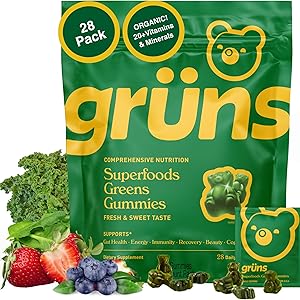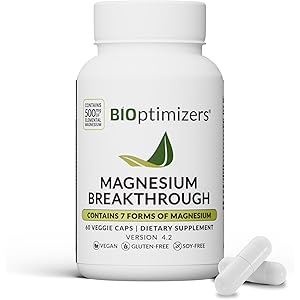Gruns Adults Super Greens Gummies, Multivitamin Superfood Gummy Bears with Spirulina, Chlorella, Prebiotics & Fiber for Digestive Health, Adaptogens Supplement with 20 Vitamins & Minerals, 28 Count
$67.00 (as of October 25, 2025 06:13 GMT +00:00 - More infoProduct prices and availability are accurate as of the date/time indicated and are subject to change. Any price and availability information displayed on [relevant Amazon Site(s), as applicable] at the time of purchase will apply to the purchase of this product.)Understanding Iron and Its Importance
Iron is an essential mineral that plays a crucial role in various bodily functions, including the production of hemoglobin, which carries oxygen in the blood. A deficiency in iron can lead to anemia, fatigue, and weakened immune function. Therefore, it is vital to include iron-rich foods in your diet to maintain optimal health and energy levels.
Red Meat: A Prime Source of Iron
One of the most well-known sources of iron is red meat, particularly beef and lamb. These meats contain heme iron, which is more easily absorbed by the body compared to non-heme iron found in plant sources. A serving of lean beef can provide a significant portion of the daily recommended intake of iron, making it an excellent choice for those looking to boost their iron levels.
Poultry: Chicken and Turkey
Poultry, such as chicken and turkey, also offers a good amount of iron, though in slightly lower quantities than red meat. Dark meat, in particular, contains more iron than white meat. Incorporating poultry into your meals can help diversify your iron sources while providing essential proteins and other nutrients.
Seafood: Fish and Shellfish
Seafood is another excellent source of iron, especially shellfish like oysters, clams, and mussels. These foods are not only rich in iron but also packed with other vital nutrients such as omega-3 fatty acids. Fish like tuna and sardines also contribute to your iron intake, making seafood a delicious and nutritious option.
Legumes: Beans and Lentils
For those following a plant-based diet, legumes such as beans, lentils, and chickpeas are fantastic sources of non-heme iron. They are versatile, easy to prepare, and can be added to a variety of dishes, from salads to stews. Pairing legumes with vitamin C-rich foods can enhance iron absorption, making them an ideal choice for vegetarians and vegans.
Nuts and Seeds: A Crunchy Iron Boost
Nuts and seeds, including pumpkin seeds, cashews, and almonds, are not only great snacks but also provide a healthy dose of iron. They can be easily incorporated into your diet by adding them to smoothies, salads, or as toppings for yogurt. Their healthy fats and protein content make them a balanced choice for boosting iron intake.
Leafy Greens: Spinach and Kale
Leafy greens, particularly spinach and kale, are well-known for their nutritional benefits, including iron content. While the iron in these vegetables is non-heme and less readily absorbed, they still contribute to your overall iron intake. Cooking these greens can help reduce oxalates, which inhibit iron absorption, making them a more effective source of this essential mineral.
Fortified Foods: A Convenient Option
Many breakfast cereals and grain products are fortified with iron, making them a convenient option for those looking to increase their intake. These fortified foods can provide a substantial amount of iron per serving, especially when combined with other iron-rich foods. Always check the labels to ensure you are choosing products with adequate iron levels.
Dried Fruits: A Sweet Source of Iron
Dried fruits, such as apricots, raisins, and prunes, are not only delicious but also provide a good source of iron. They make for a great snack or can be added to various dishes for a touch of sweetness. While they are higher in sugar, their iron content makes them a worthwhile addition to your diet in moderation.
Whole Grains: Brown Rice and Quinoa
Whole grains like brown rice, quinoa, and oats are excellent sources of iron and provide additional health benefits, including fiber and essential nutrients. Incorporating whole grains into your meals can help you meet your daily iron requirements while promoting overall digestive health. Quinoa, in particular, is a complete protein and a great choice for those seeking plant-based iron sources.


